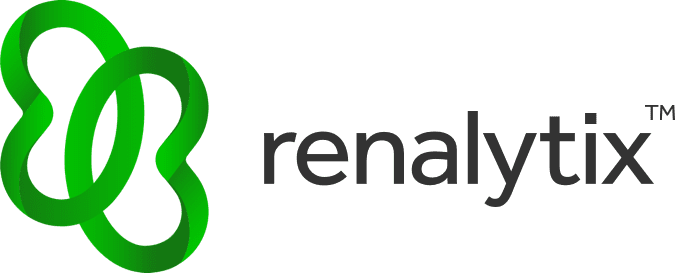Why a Shift in Thinking from Kidney Disease to Kidney Health is Mission-Critical.
A Candid Conversation with NKF Board Member, Holly Kramer
By Elise Wilfinger
06.02.2021

Today, we’re proud to launch our new Blog series, Well Filtered.™
We know that there are many health blogs, but none focused exclusively on the need to shift our thinking from how to best manage later-stage, kidney disease to how to improve kidney health via preemptive and earlier-stage diagnosis, prognosis and treatment strategies.
We believe that this shift in thinking is the only way to successfully address the kidney disease epidemic, which impacts 850 million patients worldwide.
We hope that writing this blog is another way to bring awareness to this disease and to push for innovation for this oft-ignored health crisis.
Recently, I sat down with Holly Kramer, MD, MPH, NFK Board Member, to exchange ideas on this very topic. Holly is also a Professor of Public Health Sciences and Medicine, Division of Nephrology and Hypertension at Loyola University in Chicago.
“Kidney disease – historically and still today – is largely thought to begin once kidney function is below a certain threshold.”
— Holly Kramer
Elise:
Why has the medical community almost exclusively focused on kidney disease vs. kidney health?
Holly:
Kidney disease – historically and still today – is largely thought to begin once kidney function is below a certain threshold. The problem is that once your kidney function is that low, when it can be detected through a simple blood test (serum creatinine to calculate a patient’s GFR), you’ve already lost more than 50% of your functioning nephrons. So, this is a very flawed way of measuring kidney function.
Regardless, this clinical practice is what’s well recognized and accepted. That’s because physicians are not given any tools for how to detect potential issues upstream, which is so important. The sooner you detect a disease, the earlier you can implement therapeutics and other treatments (which is when they have the best chance of working).
It’s the same principle as cancer. You don’t want to catch cancer when it’s in stage 3 or 4 and has likely spread. You can still treat at that point, but it’s not as effective as catching it early, when you might be able to cure or at least, elongate the life of the patient. Kidney disease needs to be handled very similarly.
“If we don’t invest in new thinking and innovation, we’ll continue to ‘watch’ a growing number of patients progress in their kidney disease with increasingly negative outcomes.”
— Holly Kramer
Elise:
Even though current measurements of kidney disease are “flawed”, do they still get us to first base?
Holly:
Yes, they get us to first base. If we can raise awareness – especially among higher risk populations – and get patients to see their doctor, get a simple blood test and provide a urine sample, that would be great.
Better yet, we need to look at new innovations, like what your colleagues are doing at Renalytix (trying to identify upstream those select patients who are more at risk for kidney disease progression).
I’m surprised that more people, commercial enterprises and the government are not leaning into this more. If we don’t invest in new thinking and innovation, we’ll continue to “watch” a growing number of patients progress in their kidney disease with increasingly negative outcomes.
Elise:
So, would we benefit from redefining kidney disease – at the point where it actually starts?
Holly:
Absolutely, kidney disease should be redefined to include any evidence of disease or function decline. We shouldn’t be waiting until there is substantial function loss, when it’s nearly too late.
Elise:
Have any tangible changes come out of 2019’s Executive Order for Kidney Health – especially as it relates to upstream strategies?
Holly:
There’s been some traction in the area of kidney transplantation. We’re hopeful that the Living Donor Protection Act (guarantees that living donors have access to life, disability, and long-term care insurance and protects the employment of living donors after taking time off to donate an organ) will pass. And, fortunately, the Immunosuppressive Drug Coverage Bill (indefinitely extends Medicare coverage of immunosuppressive drugs for kidney transplant recipients for individuals who do not have other coverage) has already passed. But both are focused on later stage or end stage kidney disease.
I still don’t see much traction with earlier stage strategies, where the goal would be to both prevent and keep people off of dialysis. Health professionals in the U.S. are not as interested in prevention as they are around the world.
Elise:
Why is the U.S. not interested in kidney disease prevention like other countries?
Holly:
Primarily, for these two reasons:
(1) The lack of public health infrastructure
(2) Our foundational, fee for service mechanism, where one does not make money from being in the prevention business
Elise:
In a 360° view of kidney health, is there one target constituent that matters most?
Holly:
Without a doubt, the patient needs to be the primary target for awareness building and education. We need to focus on creating awareness of the disease and then driving patients to their doctors to ask about their kidneys and what tests are needed.
At a minimum, this should be happening among high-risk populations – patients with diabetes, hypertension.
Diagnostic and prognostic companies should be looking to work with the ADA and with newer, patient advocacy organizations who believe in putting patients in charge of their own healthcare, like patientslikeme.com and AARP.
A PCP or physician-driven strategy alone will no longer work.
Elise:
If you were in charge of the U.S approach to kidney health – what would the pillars of that approach look like?
Holly:
Primarily, I see four critical pillars.
(1) Kidney Disease Screening.
First and foremost, we need to find the people at highest risk.
The ADA recommends that we annually screen these patients for kidney disease:
• All type 2 diabetic patients
• All type 1 diabetic patients five years after disease onset
I would add all people with hypertension, morbid obesity and/or a first degree relative with kidney disease.
But the U.S. Preventive Taskforce does not provide any recommendations or guidelines for kidney disease screening, due to cited ‘lack of evidence.’ That’s driven by the fact that there is limited to no federal funding for clinical trials on the effectiveness of kidney disease screening.
And since we have antiquated (lack of) guidelines in this area, primary care physicians don’t screen.
(2) New Payment Policies.
We need a system by which healthcare professionals receive financial benefit from identifying and treating kidney disease. And it needs to be established with an “it takes a village” strategy, from setting up dieticians in physician practices to getting pharmacists involved with complicated patients on a community level. It’s not just the immediate physician that can solve the problem.
Unfortunately, a new payment model was not proposed in the 2019 Executive Order for Kidney Health. So, it’s yet another outage.
(3) Incentives for Quality Care.
I would unveil evidence-based, Quality Incentive Measures that reward for quality in diagnosis, prognosis and treating patients.
(4) Massive Investment in Kidney Disease Awareness And Education.
Tangible change in outcomes will not be realized without significant investment in patient and physician awareness and education.
Let’s look at a real example: hypertension. We didn’t wake up one day and just ‘know’ that hypertension was a bad thing. There were two federally-funded clinical trials in the late 1960s, studying how the treatment of hypertension might reduce mortality. On the heels of those studies, which indicated positive findings, the government invested $200+ million dollars in awareness and education programs across the US. These programs targeted and trained physicians and nurses on the importance of measuring blood pressure and how to treat hypertension. It did take a while for blood pressure checks to become a part of standard of care, but in the three years that followed (1971-1974), stroke mortality decreased by 3%, the single largest mortality decline seen in the medical community at the time.
Although kidney disease costs $130 billion annually to Medicare alone, we still don’t see the funding needed to make a difference in kidney health.
Corroborating support
“Systolic Blood Pressure and Mortality After Stroke”, Stroke, March 5, 2015 (Notes: Hypertension is the most important modifiable risk factor for stroke, accounting for 35% to 52% of the population attributable risk of stroke.1 Benefit has been associated with an average reduction of 10/5 mm Hg,2–4 and observational data suggest that there is a linear association between lowering blood pressure (BP) and primary stroke prevention)
“….I think that Nephrology and kidney disease are going to be the specialty and disease of the 21st century.”
— Holly Kramer
Elise:
Are you still hopeful for change? Will kidney disease get its due?
Holly:
Yes, I’m very hopeful. Nephrology is a comparatively young specialty, originally growing out of advances in dialysis technologies and an uptick in metabolic research (how the kidneys metabolize the proteins that you eat and process the toxin).
Although not much has changed since, I think that Nephrology and kidney disease are going to be the specialty and disease of the 21st century. And with the right focus and research funding, akin to what happened within heart disease and cancer care, we’ll eventually find the granular information that’s needed: how does kidney disease start and how can we prevent it.
Side note: From 1999 to 2019, with awareness, education, research funding and new treatments, the cancer death rate decreased by 27%, from 200.8 to 146.2 deaths per 100,000 population.1 New cases of diagnosed diabetes in the U.S. also decreased by 35 percent since a peak in 2009.2
1 CDC.gov/media/releases/2019/p0529-diabetes-cases-decline 2 CDC.gov/cancer/update-on-cancer-deaths
If you enjoyed this post, we’d be grateful if you would help us spread its content.

